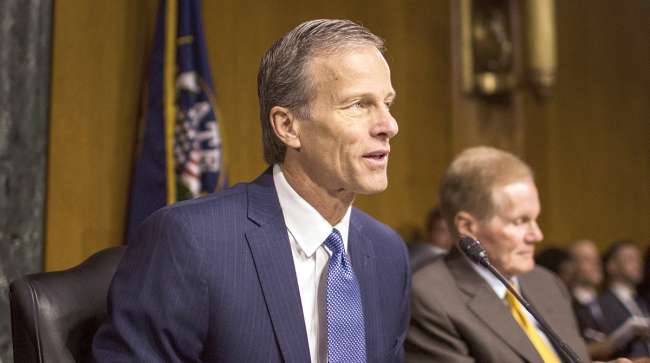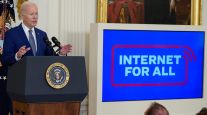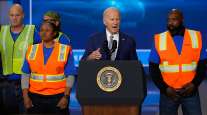Senior Reporter
Trump’s Infrastructure Vision Still Lacks Funding Source, Sen. Thune Says

Transportation policymakers on Capitol Hill have yet to identify a source of funding that would advance President Donald Trump’s $1.5 trillion infrastructure initiative unveiled last month. That was Sen. John Thune’s estimation, speaking with reporters on March 14 after his Commerce Committee hosted five Cabinet secretaries.
The secretaries of Transportation, Labor, Agriculture, Energy and Commerce explained the initiative’s “principles” to the panel.
“To get the big, really robust package the president is talking about, you have to come up with a significant source of revenues and so far those haven’t been identified,” said Thune (R-S.D.), who acknowledged the initiative’s proposal to streamline the permitting process likely would lead to savings in construction costs for infrastructure projects.

Chao
Thune also raised the possibility of having Congress vote on a small-scale infrastructure measure this year.
Transportation Secretary Elaine Chao reminded senators the White House maintains its “everything is on the table” approach when it comes to the direct federal funding aspect of the infrastructure initiative. Crafting a measure with bipartisan support also remains a priority, Chao emphasized.
Several Democrats argued the initiative does little to address the country’s overall funding needs.
In dismissing the initiative’s endorsement of private sector partnerships, Sen. Jon Tester (D-Mont.) said: “I can tell you that if it’s to sell off their assets, short of selling their roads for toll roads, which don’t work in a rural state … I don’t understand how this plan is well-thought out at all to get things built.”
Senate floor managers have yet to schedule consideration for an infrastructure measure. On the House side, Speaker Paul Ryan (R-Wis.) suggested earlier this month that transportation authorizers take up five or six transportation bills. After debate in committee, Ryan added that floor consideration would be scheduled this summer.
The White House unveiled its “principles” package on Feb. 12. It would require $200 billion in federal funds to achieve $1.3 trillion in investments over the next 10 years. Grants for rural projects and streamlining the construction permitting process to two years are key proposals.




